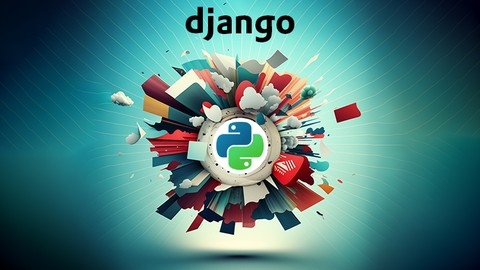Recommendation engines are becoming increasingly ubiquitous, powering personalized experiences on platforms like Netflix, Amazon, and Spotify.
These systems leverage user data and sophisticated algorithms to predict preferences and suggest relevant items, enhancing user engagement and driving business growth.
Learning about recommender systems can open doors to exciting careers in data science, machine learning, and software engineering.
Finding a high-quality recommendation engine course on Udemy can be challenging with so many options available.
You’re looking for a course that goes beyond theory, providing practical experience and hands-on projects to solidify your understanding.
We’ve reviewed countless courses and based on our analysis, Recommender Systems and Deep Learning in Python is the best course on Udemy overall.
This comprehensive course provides a deep dive into the world of recommender systems, starting with foundational concepts like average rating and association rules and progressing to more sophisticated techniques like collaborative filtering and matrix factorization.
The course also covers deep learning techniques like Restricted Boltzmann Machines (RBMs), equipping you with the skills to build sophisticated recommendation engines.
It incorporates practical projects and real-world applications, making it a great choice for both beginners and experienced learners.
While this is our top pick, other excellent options are available on Udemy.
Keep reading to discover more recommendations tailored to different learning styles and goals, from beginner-friendly introductions to advanced courses focusing on specific algorithms and techniques.
Recommender Systems and Deep Learning in Python
This course offers a comprehensive dive into the world of recommender systems, leveraging the power of Python and deep learning to build effective recommendation engines.
You’ll start with foundational concepts like average rating and association rules, gradually progressing to more sophisticated techniques like collaborative filtering and matrix factorization.
Don’t be intimidated by the technical aspects.
The course guides you through the practical application of libraries like Numpy and Keras, even providing hands-on experience with Spark for handling large datasets on AWS.
You’ll also delve into Bayesian methods, which are crucial for incorporating uncertainty into your models.
Here’s a closer look at what the course covers:
-
Building a solid understanding of recommender system basics: From average rating and association rules to PageRank, you’ll develop a foundation for understanding more complex algorithms.
-
Mastering collaborative filtering: This powerful technique, based on user preferences, is explored in detail, empowering you to create accurate recommendations.
-
Exploring matrix factorization for deep learning: You’ll learn how to implement this technique using libraries like Keras, gaining valuable skills for building sophisticated recommender systems.
-
Diving deep into Restricted Boltzmann Machines (RBMs): These specialized deep learning models, specifically designed for collaborative filtering, are covered in depth, providing you with a valuable tool for your toolkit.
-
Scaling up your recommender systems with Spark on AWS: This section equips you with the knowledge to handle massive datasets and build real-world applications.
It provides a strong foundation in recommender systems and deep learning, equipping you with the tools to build your own powerful recommendation engines.
Building Recommender Systems with Machine Learning and AI
If you’re seeking a comprehensive exploration of recommender systems, this course offers a valuable journey from foundational concepts to cutting-edge techniques.
It’s a well-structured resource that effectively guides you through the intricate world of building recommendation engines.
You’ll begin with a clear understanding of various recommender system types, including content-based filtering, collaborative filtering, and matrix factorization.
The course then seamlessly transitions into practical Python programming, equipping you with the necessary skills to code your own recommender systems.
This section covers essential Python concepts such as data structures, functions, and accuracy metrics, ensuring a strong foundation.
Moving beyond the basics, you’ll delve into the fascinating realm of deep learning.
The course covers neural networks, convolutional neural networks (CNNs), and recurrent neural networks (RNNs), demonstrating how these powerful techniques can enhance your recommender systems.
You’ll also gain hands-on experience with popular deep learning libraries like Keras and Tensorflow.
The real-world applications and challenges of recommender systems are meticulously explored, with case studies of companies like Netflix and YouTube.
You’ll learn how to address the “cold start” problem, detect fraudulent activity, and understand the complexities of recommender system architecture.
Throughout the course, you’ll be engaged through hands-on activities, exercises, and quizzes designed to solidify your understanding.
The instructors provide real-world examples and case studies to make the concepts more relatable.
However, it’s important to note that this course is not a beginner-friendly introduction to programming.
Prior experience with Python is strongly recommended to fully benefit from the practical exercises.
If you’re new to programming, consider supplementing your learning with additional introductory resources.
Its comprehensive coverage, hands-on activities, and real-world case studies provide a solid foundation for building your own intelligent recommendation engines.
Learn Python For Data Science W/ Search & Recommender Algos!
The course begins by guiding you through the core concepts of Python, including loops, conditional statements, and string functions.
You’ll gain hands-on experience with data structures like Python lists and dictionaries, and learn to perform term frequency analysis, which helps you understand the frequency of words within text.
You’ll then delve into keyword extraction, mastering techniques like the Term Importance Algorithm to assess the significance of words within a text.
The course also introduces you to fundamental search algorithms, like the Inverted Index, a crucial data structure for efficient searching.
You’ll learn to build your own simple search engine using Python, including the important aspect of ranking search results based on relevance.
Moving on to recommendation algorithms, you’ll explore concepts like Unit Vector Normalization and the Dot Product, essential tools for measuring similarities between items.
You’ll gain practical experience building a simple recommendation system in Python, using these concepts to suggest items based on user preferences.
While it focuses on the fundamentals, it lays a strong foundation for further exploration into more advanced algorithms and techniques.
Recommendation Systems With Terraform On Google Cloud
You’ll begin by understanding the core concepts behind recommender systems, exploring various types and diving into the theory that underpins them.
This initial phase seamlessly introduces you to the GCP ecosystem, equipping you with essential skills to navigate virtual machines, storage buckets, and data processing services.
Moving beyond theoretical foundations, you’ll delve into powerful machine learning techniques like Principal Component Analysis (PCA) and k-Means clustering.
These methods are crucial for extracting valuable patterns from data, enabling you to build more effective recommendations.
The course provides hands-on experience with implementing PCA and k-Means, demonstrating their application within the realm of recommender systems.
Singular Value Decomposition (SVD), another potent technique for uncovering relationships in data, is also covered, showcasing its use in enhancing prediction accuracy.
The course then transitions into the world of supervised learning, exploring widely used recommender engines such as Item Based Filtering, Content Based Filtering, and Collaborative Filtering.
You’ll learn how to set up problem scenarios for classical recommender systems and implement these techniques to generate relevant recommendations.
This practical approach extends to tools like LightFM and Word2Vec, where you’ll gain firsthand experience in leveraging their capabilities for building recommender systems.
Finally, the course introduces Terraform, a valuable tool for automating infrastructure provisioning.
You’ll learn to integrate Terraform into your GCP workflow, streamlining the process of building and deploying your recommender systems.
The course also delves into Text Analysis, covering topics such as Text Cleaning, Word Clouds, and tfidf.
You’ll engage with NLTK, a popular Python library for text analysis, through practical exercises involving text data cleaning, word cloud creation, and tfidf implementation.
This course is well-structured, covering a wide range of topics essential for building robust recommender systems.
It provides a strong foundation in both theory and practice, equipping you with the knowledge and skills to confidently tackle real-world recommender system development.
The Ultimate Beginners Guide to Python Recommender Systems
This comprehensive course provides a deep dive into the world of recommender systems, guiding you from foundational concepts to practical implementation.
You’ll explore a range of techniques, including user-based and item-based collaborative filtering, which are the core methodologies for building effective recommendation engines.
The course delves into the analysis of user data and feedback, teaching you how to calculate similarities between users and items, a critical aspect of creating personalized recommendations.
You’ll gain hands-on experience working with the popular MovieLens dataset, allowing you to test and refine your understanding of various recommendation algorithms.
The course further equips you with practical tools by introducing popular libraries like LibRecommender and Surprise, simplifying the development process.
A noteworthy aspect is the course’s emphasis on both theoretical understanding and practical application.
You’ll gain a strong foundation in the theory behind recommender systems while learning how to build these systems from scratch using real-world datasets.
The bonus section expands on key concepts, providing you with additional resources and insights to further enhance your knowledge.
How to Build A Recommendation Engine In Python
This course dives deep into the fascinating world of recommendation engines, guiding you through the practical process of building one using Python.
You’ll start by understanding the core concepts, exploring the Collaborative Filtering Algorithm, a powerful technique for predicting user preferences.
You’ll then learn how to calculate similarity between items using Euclidean Distance, a key mathematical concept that underpins recommendation systems.
The course’s practical approach is what sets it apart.
You’ll work hands-on with Python to find similar items and users, ultimately creating a simple recommendation engine.
You’ll practice building a recommendation function, finding commonly reviewed items, and calculating similarity scores, all within the user-friendly PythonAnywhere cloud platform.
While this course is ideal for beginners with some Python knowledge, it provides a strong foundation for anyone interested in learning how recommendation engines work and how to build your own.
You’ll gain valuable skills in data analysis, algorithm implementation, and the practical application of these techniques to real-world scenarios.
Practical Recommender Systems For Business Applications
You’ll dive deep into the practical aspects of data science, mastering data manipulation and cleaning with Python and Pandas, and gaining hands-on experience with Google Colaboratory, a powerful platform for data science tasks.
You’ll explore a wide range of recommender system types, covering both unsupervised and supervised learning methods.
You’ll delve into clustering techniques like K-means Clustering and dimensionality reduction methods like Principal Component Analysis (PCA).
You’ll also learn how to leverage different similarity measures, such as Cosine Similarity and Jaccard Similarity, and implement Single Value Decomposition (SVD) for finding patterns in data.
The course moves beyond theory, equipping you with practical skills for building real-world applications.
You’ll use tools like NTLK for text cleaning and Word2Vec for creating word embeddings, and learn to build content-based and collaborative filtering systems.
You’ll also explore more advanced techniques like hybrid recommender systems using LightFM.
While the course provides a strong foundation in recommender system theory and implementation, it could benefit from more in-depth exploration of specific algorithms and their applications.
For example, a deeper dive into the nuances of different collaborative filtering techniques or a more comprehensive case study demonstrating the application of hybrid recommender systems would enhance the learning experience.
Python Programming: Build a Recommendation Engine in Django
Imagine building a personalized movie recommendation engine from scratch, powered by cutting-edge techniques like collaborative filtering and dynamic web interactions.
This course empowers you to do just that, leveraging the robust framework of Django.
You’ll start by mastering the essentials, setting up your Django project and handling diverse datasets – even generating fake user data to simulate real-world scenarios.
Then, you’ll dive into the world of collaborative filtering, where you’ll learn to predict user preferences based on their past interactions with similar movies.
This is where the powerful Surprise library comes in, allowing you to build a recommendation engine that suggests movies tailored to each user’s unique tastes.
But this course doesn’t stop at data analysis.
You’ll also explore the dynamic possibilities of HTMX, a JavaScript library that breathes life into your web application.
Imagine users seamlessly rating movies, with instant updates and new recommendations appearing as they interact with the system – all without refreshing the entire page.
This is the power of HTMX.
Throughout this journey, Django acts as your trusted orchestrator, managing your machine learning pipeline from training models to generating predictions and storing them in your database.
You’ll also learn the benefits of Celery, a task queue system that handles computationally intensive tasks in the background, ensuring your application remains responsive and efficient.
This is more than just a course; it’s a gateway to creating truly personalized and engaging user experiences.








